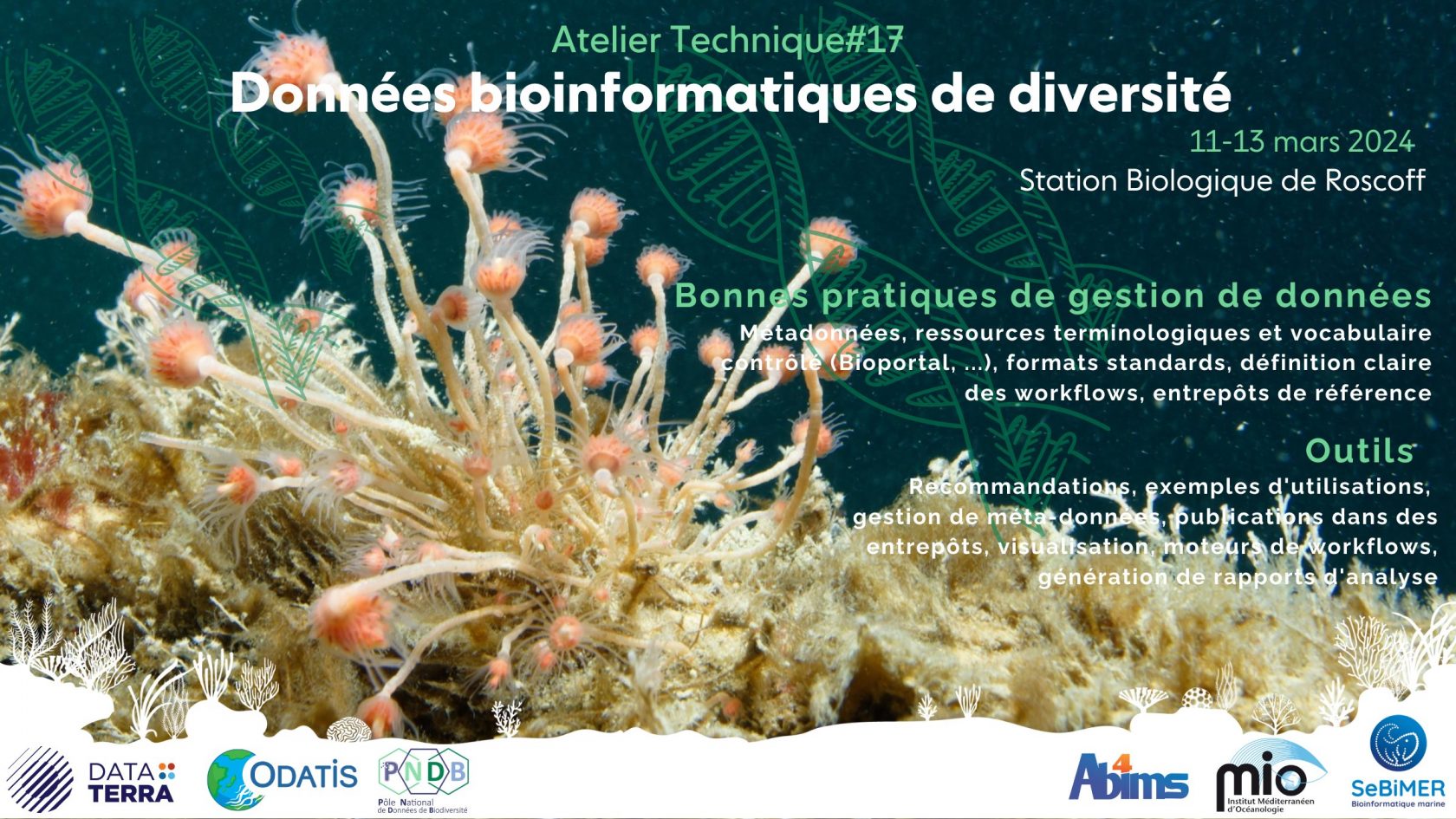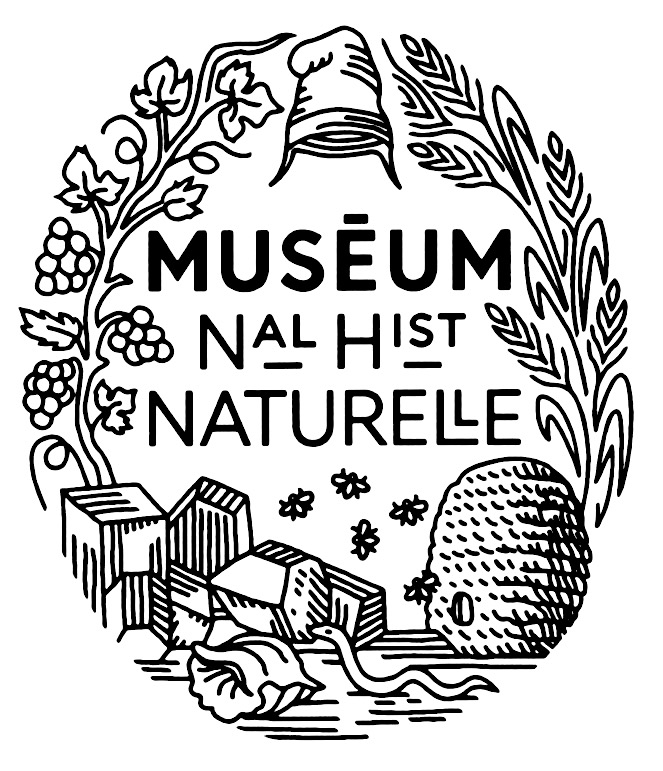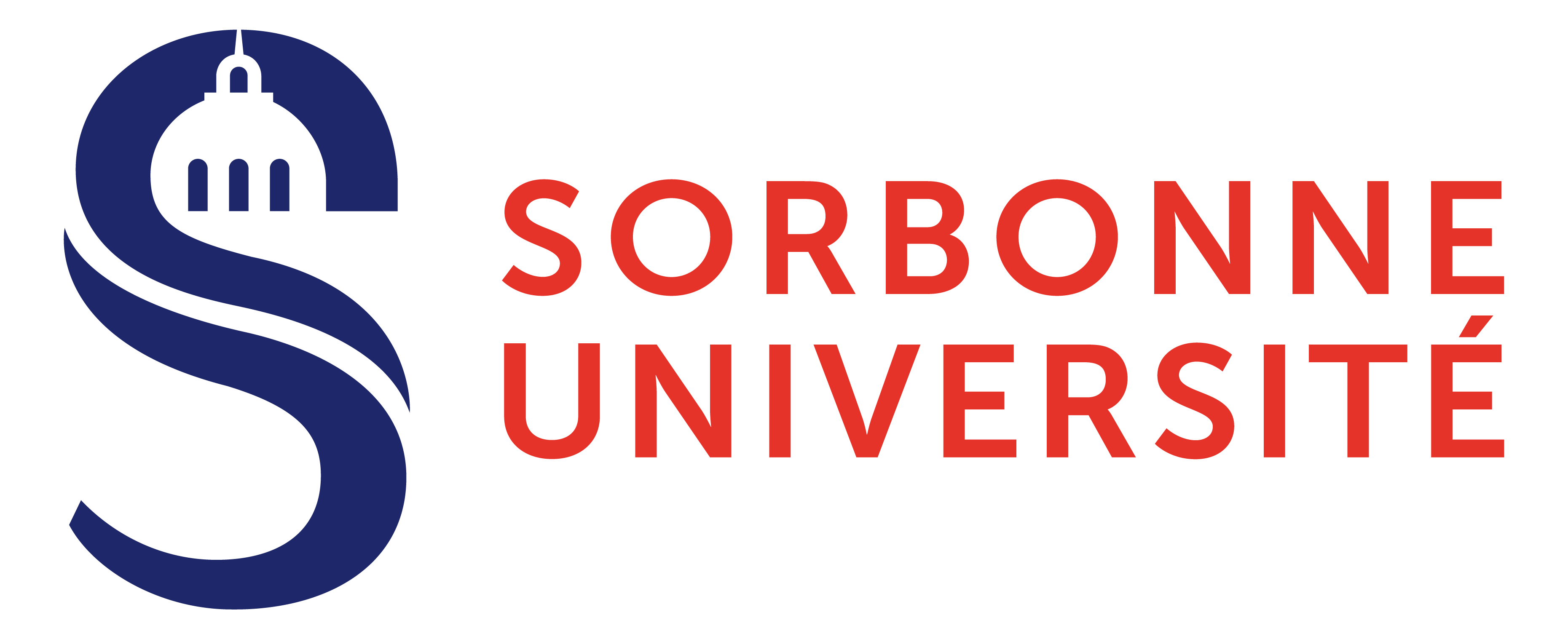Agenda
- Formation La donnée en biodiversité : de l’acquisition à l’ouverture
- Journées French BON 2024
- Printemps de la donnée 2024
- Love Data Week - session Data papers - 14 mars Nancy
- Atelier bioinformatique - biodiversité marine - 11, 12 et 13 mars 2024, Roscoff
- Journée Interopérabilité et Innovation (J2I) 23 janvier 2024
- Atelier données de Biodiversité à UGA [27 novembre 2023]
- Séminaire scientifique du PNDB [21-22 nov 2023]
- Les journées EcoinfoFAIR 2023 (24-25-26 oct 2023]
- Conférence internationale GEO BON [10-13 oct 2023]
- Kick-Off du projet ESPOIRS [4-5 sept 2023]
- Printemps de la donnée 2023
- Tour de France d'informations/formations sur le PNDB
- European Galaxy Days [3-7 oct. 2022]
- Congrès TDWG [17-21 octobre 2022]
- les journées écoinfoFAIR 2022
- Congrès conjoint SFE²-GfO-EEF [21-25 novembre 2022]
Formation : La donnée en biodiversité : de l’acquisition à l’ouverture
Cette formation de cinq jours a pour objectif de travailler autour des différentes étapes du cycle de la donnée, de l’acquisition à l’ouverture en passant par la gestion, le stockage et la rédaction de data papers.
Organisateurs
Cette formation est proposée par le Centre de synthèse et d'analyse sur la biodiversité - CESAB - de la Fondation pour la recherche sur la biodiversité en lien avec le Pôle National de Données de Biodiversité et le point nodal français du GBIF
Dates et lieu :
Du 4 au 8 novembre en présentiel au CESAB à Montpellier.
Citations
Casajus N, Coux C, Le Bras Y, Norvez O, Archambeau A-S & Pamerlon S (2024) Biodiversity data: From data collection to publication. An FRB-CESAB, PNDB & GBIF France training course. URL: https://biodiversitydata.github.io/

[Pour aller plus loin : pré-programme et pré-inscriptions]
Journées pour l'étude et le suivi de la biodiversité : Ateliers French BON 2024
Dans le cadre de la représentation française au réseau international GEO BON (Group on Earth Observations : Biodiversity Observation Network), le Pôle National de Données de Biodiversité - PNDB (IR Data Terra), le Système d’information sur la biodiversité - SIB, le point nodal français du GBIF et l’équipe projet Biodiversa+ de l’Office français de la biodiversité, vous invite à 3 journées (plénière - hybride et ateliers - présentiel), les 11, 12 et 13 juin, à la station marine de Sète, de co-construction d’un réseau national pour et par les communautés travaillant sur l’étude et le suivi de la biodiversité.

Printemps de la donnée 2024
La troisième édition du Printemps de la donnée se déroulera du 19 mars au 27 juin 2024.

C'est un mois d'événements (ateliers, conférences, webinaires, hackathons, ...) à destination des producteurs et utilisateurs des {méta}données avec un focus sur les principes FAIR (Facile à trouver, Accessible, Interopérable et Réutilisable) et la Science Ouverte.

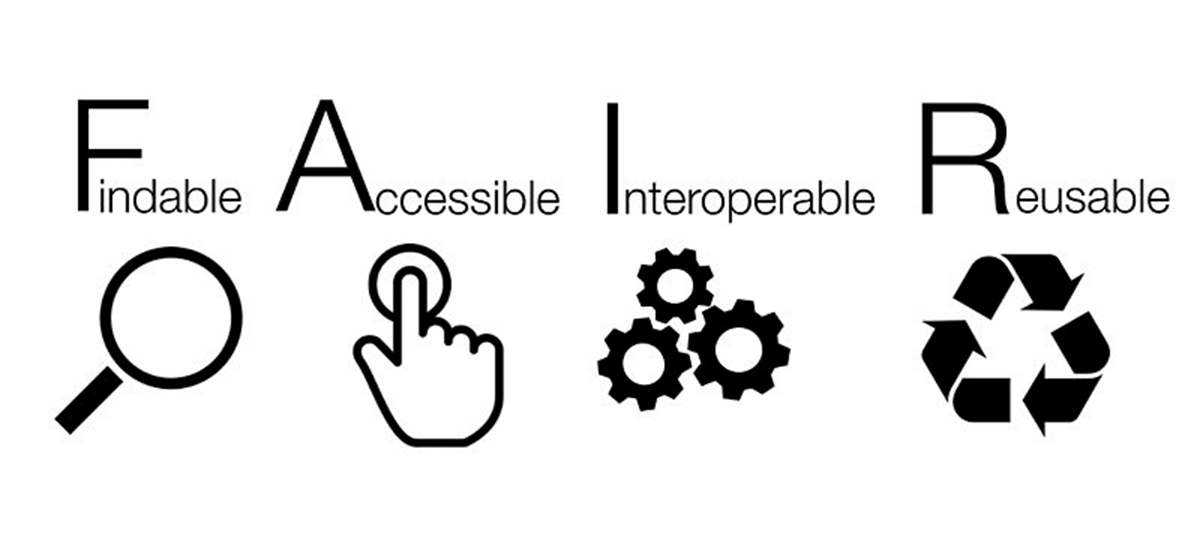
Participer au Printemps de la donnée permettra de :
- Rendre plus visibles les actions et acteurs locaux qui travaillent sur la donnée.
- Favoriser des regards et des retours d’expérience croisés
- Capitaliser sur les ressources mobilisées et/ou produites
- Créer une émulation nationale autour de l’évènement
Pour la seconde fois le PNDB est fier de faire parti du Comité d'Organisation aux côtés de l'INRAE, l'Université de Haute-Alsace, l'Université de Strasbourg,l' Université Grenoble Alpes, l'INSA Strasbourg, l'Université de Lille, et AgroParisTech
N’hésitez pas à proposer vos événements via le formulaire suivant : http://printempsdeladonnee.fr/contribuer/proposer-un-evenement
Retrouvez dans le calendrier 2024, toutes les manifestations déjà programmées et sur la chaine Canal-U « Printemps de la donnée » les manifestations de l’édition précédente.
Plénière d'ouverture
Au programme : un peu d’histoire de l’événement, un aperçu de l’agenda 2024 et des invités : Kenneth Mausang et Nicolas Larousse qui vous présenteront le rapport « données et recherches participatives » réalisé par le Comité pour la Science Ouverte
Lien de connexion : bbb.visio.inrae.fr/b/dim-2bc-rf4-abu

Evénement du PNDB
Dans le cadre du Printemps de la Donnée 2024, le PNDB y présente ses missions, outils & services en tant que pôle de données de l'infrastructure de recherche Data Terra, et centre de référence thématique de Recherche Data Gouv via :
- Comprendre le PNDB en 1 heure
- 21 mars 14h30-15h30 en visio [lien visio]
- support de présentation disponible içi
- lien site web Printemps de la donnée [cliquer içi]
- Partager les {méta}données et publication de data papers en biodiversité, par le PNDB et le GBIF France
- 2 avril 14h30-15h30 en visio [lien visio]
- support de présentation (bientôt disponible)
- lien site web Printemps de la donnée [cliquer içi]
- Introduction à Galaxy-Ecology : une plateforme d'analyse en ligne, par Marie Jossé (CNRS, projet FAIR EASE)
- 11 avril 14h30-15h30 en visio [lien visio]
- support de présentation (bientôt disponible)
- lien site web Printemps de la donnée [cliquer içi]
Clôture de l'événement
Le comité d'organisation vous donne rendez-vous le 27 juin de 10h à 12h pour la clôture de l'édition 2024 du printemps de la donnée
Au programme :
- bilan de l’édition 2024,
- retour d’expérience d’un établissement impliqué depuis le début,
- des interventions autour de l’écosystème recherche data gouv,
- sans oublier les nombreuses ressources produites par le Comité pour la Science Ouverte

Love Data Week - session Data papers - 14 mars Nancy
Dans le cadre de la Love Data Week, organisé par l'atelier de la donnée ADOC Lorraine (11 au 15 mars), le PNDB et le point nodal français du GBIF (GBIF France), feront une présentation le 14 mars autour du partage des données & métadonnées de biodiversité via notamment la publication de data papers.

[En savoir plus sur les Data papers] [informations et inscriptions Love Data Week]
Atelier bioinformatique - biodiversité marine - 11, 12 et 13 mars 2024, Roscoff
Nous sommes heureux d'annoncer l'atelier technique commun entre les Pôles de données ODATIS et PNDB le 11, 12 et 13 mars 2024 à la Station Biologique de Roscoff, organisé en coopération avec ABIMS, SEBIMER et MIO.
Le thème est "Données bioinformatiques de diversité".
Le programme détaillé sera annoncé en début de l'année 2024.
Journée Interopérabilité et Innovation (J2I) 23 janvier 2024
Le forum OGC France et la commission nationale de l’information géographique et spatiale de l’AFNOR organisent la 9ᵉ édition de la Journée Interopérabilité et Innovation (J2I) : « Le FAIR data en appui à la compréhension de la Terre et de son environnement ».
Elle se tiendra à l’Université Gustave Eiffel à Marne-La-Vallée, le mardi 23 janvier 2024, sur le thème : F.A.I.R. (Findable Accessible Interoperable Reusable) et normalisation. À ce titre, cette édition est organisée conjointement avec l’Infrastructure de Recherche nationale Data Terra et le projet GAIA Data.
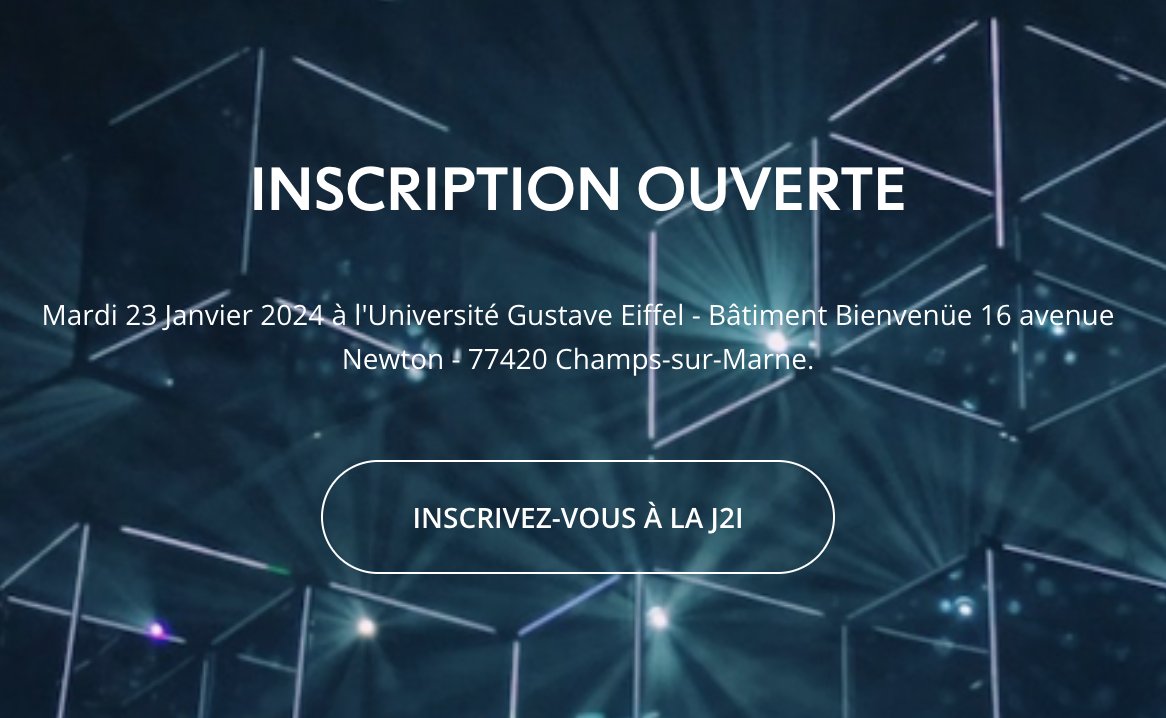
[Informations et inscriptions]
Atelier données de Biodiversité à UGA
Le PNDB avec le GBIF France seront présents à une journée organisée par l'Observatoire des Sciences de l'Univers de Grenoble dans le cadre d'un atelier dédié aux données de biodiversité, le 27 novembre 2023 : "Les Bases de données en Biodiversité à l’ère du big data : exemples de projets de recherche et nouveaux outils d’analyses (IA...)"
[Télécharger la présentation donnée par le PNDB] [Programme et résumés des présentations]
Séminaire scientifique du PNDB
Le Pôle National de Données de Biodiversité - PNDB - et ses partenaires, vous invite avec le soutien de la Fondation pour la Recherche sur la Biodiversité - FRB et l'Université de Bretagne Occidentale - UBO, à un séminaire scientifique (plénière et ateliers) les 21 & 22 novembre 2023 à Brest.

Les journées EcoinfoFAIR 2023
L’édition 2023 des journées EcoInfoFAIR se dérouleront les 24, 25 et 26 octobre 2023 au CESAB (FRB) à Montpellier en présentiel (environ 20 perosnnes) avec en plus un accès visio pour les personnes en distanciel. Cette année il y aura notamment un focus sur les "données ADN".
L’animation de cet événement est co-construit avec les participants et coordonnée par l'équipe du Pôle National de Données de Biodiversité - PNDB, et en collaboration avec le CEntre de Synthèse et d’Analyse sur la Biodiversité - CESAB- de la Fondation pour la Recherche sur la Biodiversité.

Conférence internationale GEO BON
Le PNDB en tant que French BON sera à la conférence internationale organiséé par GEO BON du 10 au 13 octobre à Montréal.
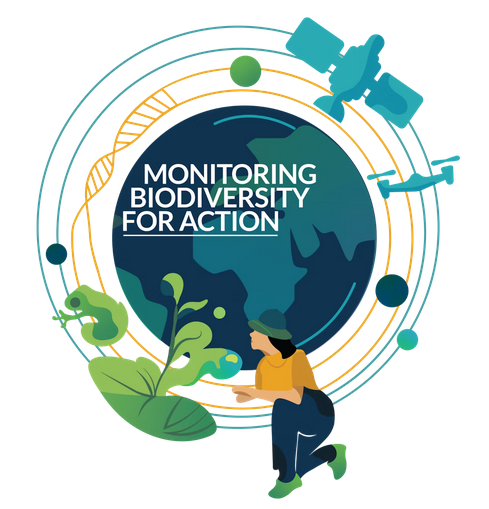
L'équipe y sera en présentiel et y présentera :
- Research in artificial intelligence in the field of marine biodiversity: An unprecedented international scientific challenge [talk]
- From EBV operationalization pilot to GBiOS, a french BON point of view [talk]
- From raw heterogeneous biodiversity data to operational indicators based on essential variables : an exploratory session thanks to Galaxy-Ecology [workshop]
- Enhancing collaboration and data accessibility in Earth and environmental sciences: a gateway approach of the FAIR-EASE project [talk]
Kick-Off du projet ESPOIRS
Le PNDB est impliqué dans le projet ESPOIRS (Etude de la réponse des estrans aux changements globaux par les Sciences Participatives : biOindication à l’InteRface sciences Société) financement par l'ANr notamment au niveau de la mise en place d'un environnement virtuel de recherche et l'accompagnement pour le partage et la diffussion/valorisartion des données et métadonnées de biodiversité.
Le Kick off aura lieu les 4 et 5 septembre à Dinard.
Printemps de la donnée - 2023
La seconde édition du Printemps de la donnée se déroulera du 22 mai au 20 juin 2023.

C'est un mois d'événements (ateliers, conférences, webinaires, hackathons, ...) à destination des producteurs et utilisateurs des {méta}données avec un focus sur les principes FAIR (Facile à trouver, Accessible, Interopérable et Réutilisable) et la Science Ouverte.


Participer au Printemps de la donnée permettra de :
- Rendre plus visibles les actions et acteurs locaux qui travaillent sur la donnée.
- Favoriser des regards et des retours d’expérience croisés
- Capitaliser sur les ressources mobilisées et/ou produites
- Créer une émulation nationale autour de l’évènement
Pour cette seconde édition le PNDB est fier de faire parti du Comité d'Organisation aux côtés de l'INRAE, l'Université de Haute-Alsace, l'Université de Strasbourg,l' Université Grenoble Alpes, l'INSA Strasbourg, l'Université de Lille, et AgroParisTech
N’hésitez pas à proposer vos événements via le formulaire suivant : http://printempsdeladonnee.fr/contribuer/proposer-un-evenement
Retrouvez dans le calendrier 2023, toutes les manifestations déjà programmées et sur la chaine Canal-U « Printemps de la donnée » les manifestations de l’édition précédente.
Webinaires du PNDB
Dans le cadre du Printemps de la Donnée 2023, le PNDB y présente plusieurs outils & services via 3 webinaires :
-
- Inititation à Galaxy-Ecology, une plateforme d'analyse en ligne des données environnementales.
- 24 mai de 12h-13h en visio [lien visio]
- Ce webinaire est proposé par Coline Royaux, étudiante au doctorat en écoinformatique et écologie évolutive (UMR Borea, Sorbonne Université) et data scientist au PNDB (Muséum national d'histoire naturelle - PatriNat). Ce webinaire s'inscrit également dans le cadre du Challenge Green Data For Health.
- lien de l'événement eventbrite proposé par GD4H
- lien vers site web printemps de la donnée
- Comprendre le PNDB en 1 heure
- 30 mai 9h30 - 10h30 en visio [lien visio]
- support de présentation disponible içi
- lien site web Printemps de la donnée
- Présentation du projet OpenMetaPaper et les datapapers en biodiversité
- 30 mai 13h-14h
- Le projet OpenMetaPaper propose de compléter les initiatives existantes au niveau du Pôle national de données de biodiversité, et en lien avec notamment le GBIF et le projet GO FAIR BiodiFAIRse afin de booster l’ouverture des données de recherche en écologie et d’accélérer les initiatives en cours autour de l’utilisation du standard EML et de ses liens avec les autres standards de données et métadonnées en écologie et dans les disciplines proches.
- Webinaire Proposé par le PNDB et le point nodal français du GBIF
- lien vers site web printemps de la donnée
Tour de France d'informations/formations sur le PNDB
Dans le cadre des actions d'animations et de communication du PNDB, nous avons commencé depuis fin 2022 un tour de France des partenairess et autres institutions désirant s'informer/se former aux outils et services du PNDB.
Cette présentation est donnée sur un format d'une heure (env. 1/h de présentation + 1/2 h d'échange). Elle peut se faire en visio-conférence ou en présentiel et être suivie d'un atelier/formation sur les outils du PNDB si demandé : [contact.pndb] at [mnhn.fr] ou formulaire
Calendrier :
| Lieux | Dates | liens et programmes |
|
CIRAD, Montpellier
|
28/02/2024 |
|
|
AgroParisTech
|
22/06/2023 |
|
|
Institut de Recherche pour le Développement
|
20/04/2023 |
|
|
Muséum National d'Histoire Naturelle
|
12/04/2023 |
|
|
Université de Rennes
|
07/04/2023 |
|
|
Université de Grenoble-Alpes
|
02/02/2023 |
|
|
Sorbonne Université
|
13/01/2023 |
|
|
Université Paris-Saclay
|
15/11/2022 |
|
European Galaxy Days [3-7 octobre 2022]
Cette année, les journées européennes de la communauté Galaxy ont lieu à Friburg du 4 au 7 octobre 2022.
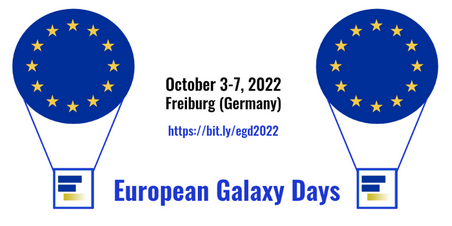
Le PNDB y participe via deux présentations :
- Yvan Le Bras : Galaxy-E: Ecological data analysis, citizen science and biodiversity indicators production!
- Marie Jossé : From raw data to biodiversity indicators
[Pour en savoir plus sur le congrès]
[Pour en savoir plus sur Galaxy-Ecology]
Congrès du TDWG 2022 [17-21 octobre 2022]
Kesaco le TDWG ?
Historiquement connu sous le nom de Groupe de travail sur les bases de données taxonomiques, le Biodiversity Information Standards (TDWG) est aujourd'hui une association scientifique et éducative à but non lucratif créée pour établir une collaboration internationale entre les créateurs, les gestionnaires et les utilisateurs d'informations sur la biodiversité et pour promouvoir une diffusion et partage efficaces des connaissances sur le patrimoine mondial d'organismes biologiques.
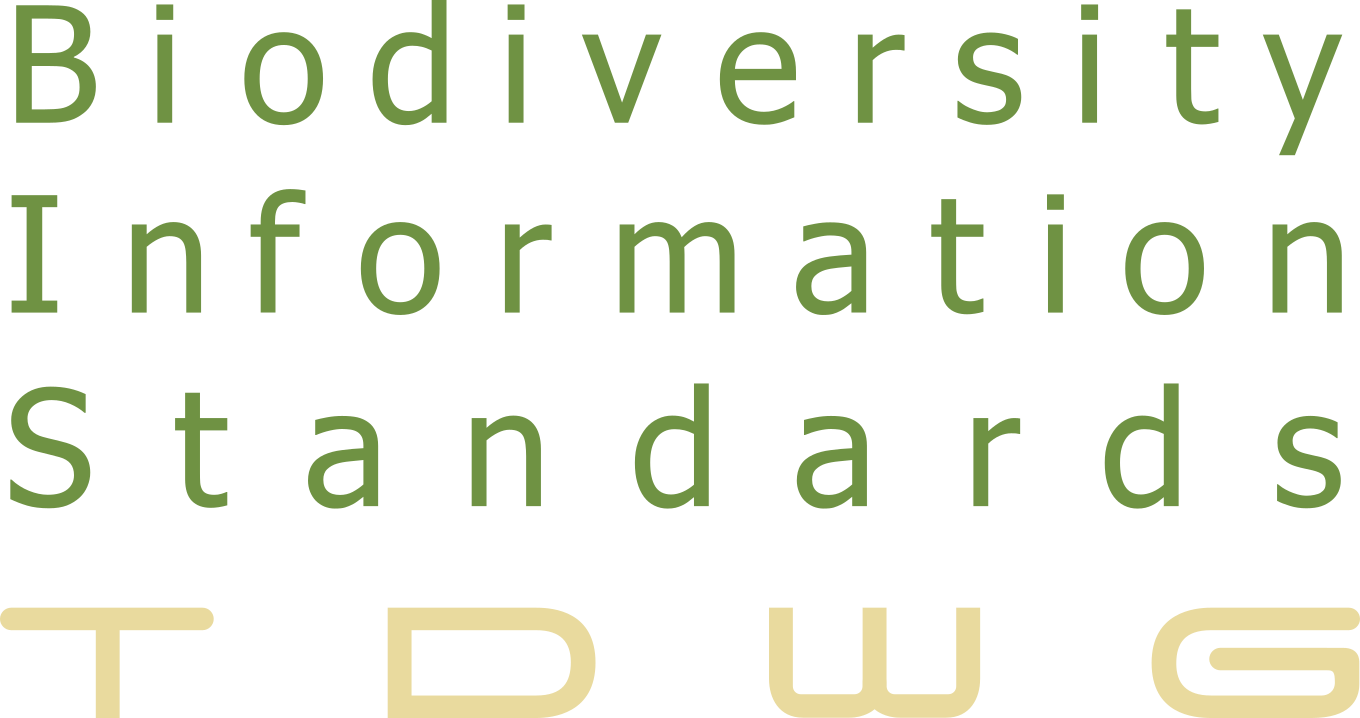
Pour atteindre ses objectifs, le TDWG :
- élabore, ratifie et promeut des normes et des lignes directrices pour l'enregistrement et l'échange de données sur les organismes;
- agit comme un forum pour discuter de tous les aspects de la gestion de l'information sur la biodiversité par le biais de réunions, de discussions en ligne et de publications.
Congrès édition 2022
Cette année le congrès annuel s epasse en mode hybride (présentiel et visio) à Sofia en Bulgarie du 17 au 21 octobre.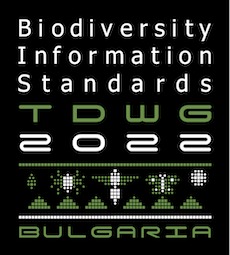
L'éditon 2022 est organisé par :
- Pensoft,
- National Museum of Natural History, Bulgarian Academy of Sciences, and
- Institute of Biodiversity and Ecosystem Research, Bulgarian Academy of Sciences,
Le PNDB y sera et y présentera ses derniers travaux & outils pour la compréhension, le partage et l'utilisation des {méta}données de biodiversité. Toutes les présentations sont publiées via le journal Biodiversity Information Science and Standard (BISS) de l'éditeur Pensoft.
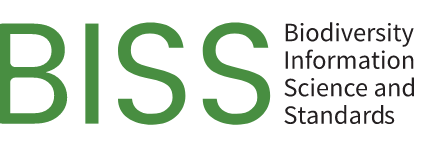
- Royaux C, Sananikone J, Arnaud E, Norvez O, Ainsa A, Morin S, Pamerlon S, Archambeau A-S, Le Bras Y (2022) French Biodiversity Data Hub: Linking local to global biodiversity through international initiatives and open science clouds. Biodiversity Information Science and Standards 6: e91374. https://doi.org/10.3897/biss.6.91374
- Royaux C, Norvez O, Jossé M, Arnaud E, Sananikone J, Pavoine S, Pelletier D, Mihoub J-B, Le Bras Y (2022) From Biodiversity Observation Networks to Datasets and Workflows Supporting Biodiversity Indicators, a French Biodiversity Observation Network (BON) Essential Biodiversity Variables (EBV) Operationalization Pilot using Galaxy and Ecological Metadata Language. Biodiversity Information Science and Standards 6: e94957. https://doi.org/10.3897/biss.6.94957
- Royaux C, Arnaud E, Sananikone J, Jossé M, Madelin M, Pelletier D, Norvez O, Le Bras Y (2022) Open Science for Better FAIRness: A biodiversity virtual research environment point of view. Biodiversity Information Science and Standards 6: e95110. https://doi.org/10.3897/biss.6.95110
- Sananikone J, Arnaud E, Norvez O, Pamerlon S, Archambeau A-S, Le Bras Y (2022) From Raw Data to Data Standards through Quality Assessment and Semantic Annotation. Biodiversity Information Science and Standards 6: e91205. https://doi.org/10.3897/biss.6.91205
Les journées écoinfoFAIR 2022
Une action nationale ouverte à tous, de type atelier de travail / "collaboration fest" autour du développement logiciel incluant un aspect formations introductives et dédiée aux communautés en écologie.
[Pour en savoir plus sur les journées écoinfoFAIR]
Congrès conjoint SFE²-GfO-EEF
Kesaco la SFE² ?
La SFE² est une association loi 1901, reconnue d’utilité publique et membre de l’European Ecological Federation et d’INTECOL. 
Elle a pour objectif de faire rayonner les sciences de l’écologie et de l’évolution en France en promouvant le développement, l’intégration et le partage des connaissances sous tous ses aspects. Elle représente l’ensemble de la communauté des écologues et évolutionnistes français et établit des actions communes avec les autres sociétés et associations pour que s’ouvre un vrai dialogue entre savoirs, impliquant scientifiques, gestionnaires, et usagers.
Congrès conjoint annuel 2022
Du 21 au 25 novembre à Metz (France) aura lieu le congrès de la Société française d'Ecologie et d'Evolution en lien avec les sociétés allemandes et européennes.

[Pour en savoir plus sur le congrès]
Le PNDB y sera et présentera :
-
un poster : The French biodiversity data Hub (PNDB), a virtual biodiversity data infrastrucutre for and by researchers (cf. poster en version française).
-
Présentateur : Olivier Norvez
-
Co-auteurs : Anne-Sophie Archambeau (IRD), Elie Arnaud (MNHN), Cécile Bernard (MNHN), Thomas Bouix (OFB), Aurélie Delavaud¹, Dominique Joly⁵, Chloé Martin⁵, Thomas Milon (OFB), Sandrine Pavoine (MNHN), Laurent Poncet (MNHN), Coline Royaux (MNHN et Sorbonne Université), Julien Sananikone (MNHN), Jean-Denis Vigne (MNHN), & Yvan Le Bras (MNHN)
-
-
un workshop : From raw biodiversity data to operational indicators through Essential Biodiversity Variables (cf. lien du congrès)
-
Résumé : Because data integration with different ecological scales in biodiversity science is complex, the biodiversity community (scientists, policy makers, managers, citizen, NGOs) needs to build, a framework of harmonized and interoperable data from raw, heterogeneous and scattered datasets, in order to observe, measure and understand the spatio-temporal dynamic of biodiversity from local to global scale. One of the most relevant approaches to reach that aim is the concept of Essential Biodiversity Variables (EBV). Because we can potentially extract a lot of information from raw datasets sampled at different ecological scales, the EBV concept represent a useful leverage for identifying appropriate data to be collated as well as associated analytical workflow for processing these data. Thanks to FAIR data and source code implementation (Findable, Accessible, Interopability, Reusable), it is possible to make transparent assessment of biodiversity by generating operational indicators through the EBV framework, and help designing or improving biodiversity monitoring at various scales.
Based on the EBV, the French biodiversity data hub (“Pôle National de Données de Biodiversité” - PNDB ), is an e-infrastructure for and by researchers developing an integrated framework for 1) extracting EBV information from raw data using Ecological Metadata Language , (EML), 2) running reproducible ecological analysis through open-access workflows, and 3) producing biodiversity indicators for research, expertise and policy makers thanks to the Galaxy-Ecology collaborative platform .
In line with both the GO FAIR initiative and the GEO BON network , the PNDB is proposing a case study to focus on i) advancing conceptual developments related to EBV, such as the complementarities between EBVs and Pressure-State-Response frameworks (e.g. DPsIR) or the improvement of the research/expertise interface, ii) implementing EBVs for and with various communities (scientific research, expertise and policy makers), and iii) operationalizing EBV based on existing technologies (EML, Galaxy-Ecology). All of this will benefit various communities of biodiversity scientists.
-
Présentateurs : Olivier Norvez (FRB & MNHN) Sandrine Pavoine (MNHN),
-
Co-auteurs : Coline Royaux (Sorbonne Université & MNHN), Jean-Baptiste Mihoub (Sorbonne Université), Dominique Pelletier (Ifremer), Aurélie Delavaud (FRB) & Yvan Le Bras (MNHN)
-
[Voir la présentation du workshop sur les EBV]
-
Une présentation : Research in artificial intelligence in the field of marine biodiversity : An unprecedented international scientific challenge
-
Résumé : The AI-Biodiv challenge aims to predict changes in biodiversity and develop reliable indicators. Given the complexity of interactions between ecosystems and the heterogeneity of data, current indicators remain limited in predicting changes in biodiversity, particularly in the marine environment. Furthermore, data structuring remains one of the major obstacles to knowledge of biodiversity. The main objectives are :
-
optimise AI methods to improve research into marine biodiversity,
-
design innovative prediction models and indicators,
-
develop hybrid AI methods to enhance our knowledge of marine environments
-
and will focus on coastal marine biodiversity in the Mediterranean Sea and the Pacific Ocean.
-
-
Présentateur : Yvan Le Bras (MNHN)
-
Co-auteurs : Olivier Norvez (FRB-MNHN), Aurélie Delavaud (FRB), Olivier Gallibert (LNE), & Virginie Barbosa (LNE)
-
[Voir la présentation du Challenge IA-Biodiv]
